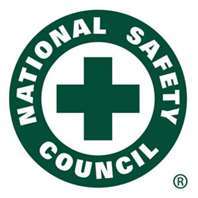NSC distracted driving expert speaks out on dangers of infotainment systems
 |
One-day summit focuses on finding safe technological solutions to cell phone distracted driving
ITASCA, IL--Feb. 6, 2014: Today, National Safety Council Senior Director of Transportation Initiatives David Teater will participate in a day-long summit on technological solutions to distracted driving. The summit, Over-Connected and Behind the Wheel: A Summit on Technological Solutions to Distracted Driving, is hosted by Senate Commerce, Science and Transportation Committee Chairman Jay Rockefeller IV. Teater specifically will participate in the roundtable discussions, "The State of Technology" and "Where Do We Go From Here?"
Among other technological advances, the summit will address voice-operated in-vehicle infotainment systems. NSC believes these systems create unnecessary distractions for drivers such as the ability to make phone calls, send and receive text messages and emails, and use social media – all tasks that take a driver's focus away from the road. NSC believes technology can be a solution to the distracted driving epidemic, but the Council does not believe these in-vehicle systems are the answer. Research has shown voice-to-text infotainment features are dangerous and do not offer drivers any safety benefit.
"The rapid advancement and adoption of communications technology has resulted in a new and dangerous level of driver distraction," Teater said. "It is likely that technology can go a long way in reducing distraction; however, if we continue down the current path of enabling drivers to engage in all sorts of infotainment and communications activities, we may be normalizing a dangerous practice that will be difficult to unwind in the future."
Motor vehicle crashes remain the leading cause of death for a large portion of the U.S. population. Approximately 100 people are killed every day in car crashes, and many times that number are seriously injured. As many as 90 percent of these crashes are primarily the result of driver error and inattention.
"We recognize there is a mad rush toward communications technologies and we don't want to stop any kind of technology development," Teater said. " We simply want them to be used at the right time and place, and driving a vehicle is not the right time or place to do anything not related to driving. With that in mind, we urge the auto industry to limit the use of infotainment systems by drivers. The industry is already doing this in some ways. Most auto companies prevent moving video from being seen by drivers while a vehicle is in motion. Extending this kind of limitation to drivers' use of phones and internet would be a significant life-saving move by the industry."
NSC encourages automakers to work toward giving drivers, parents and employers the option of disabling non-driving related functions that are built into vehicles. NSC also recommends automakers collaborate with the wireless and consumer electronics industries and private technology firms to expedite development and deployment of technology solutions to driver distraction.
The Council applauds Chairman Rockefeller for his leadership in convening the summit and looks forward to working with him and other stakeholders to accelerate the implementation of techn


